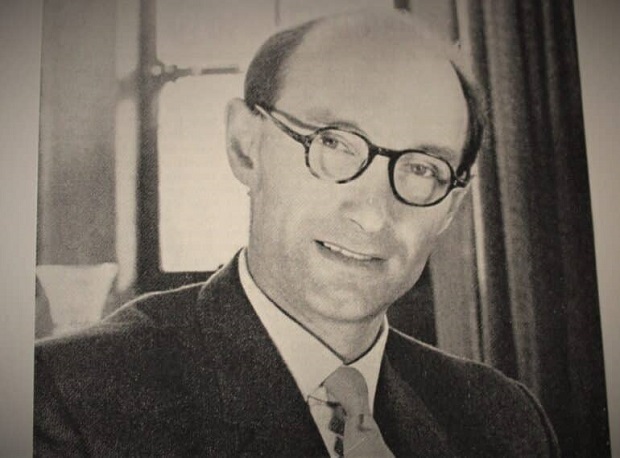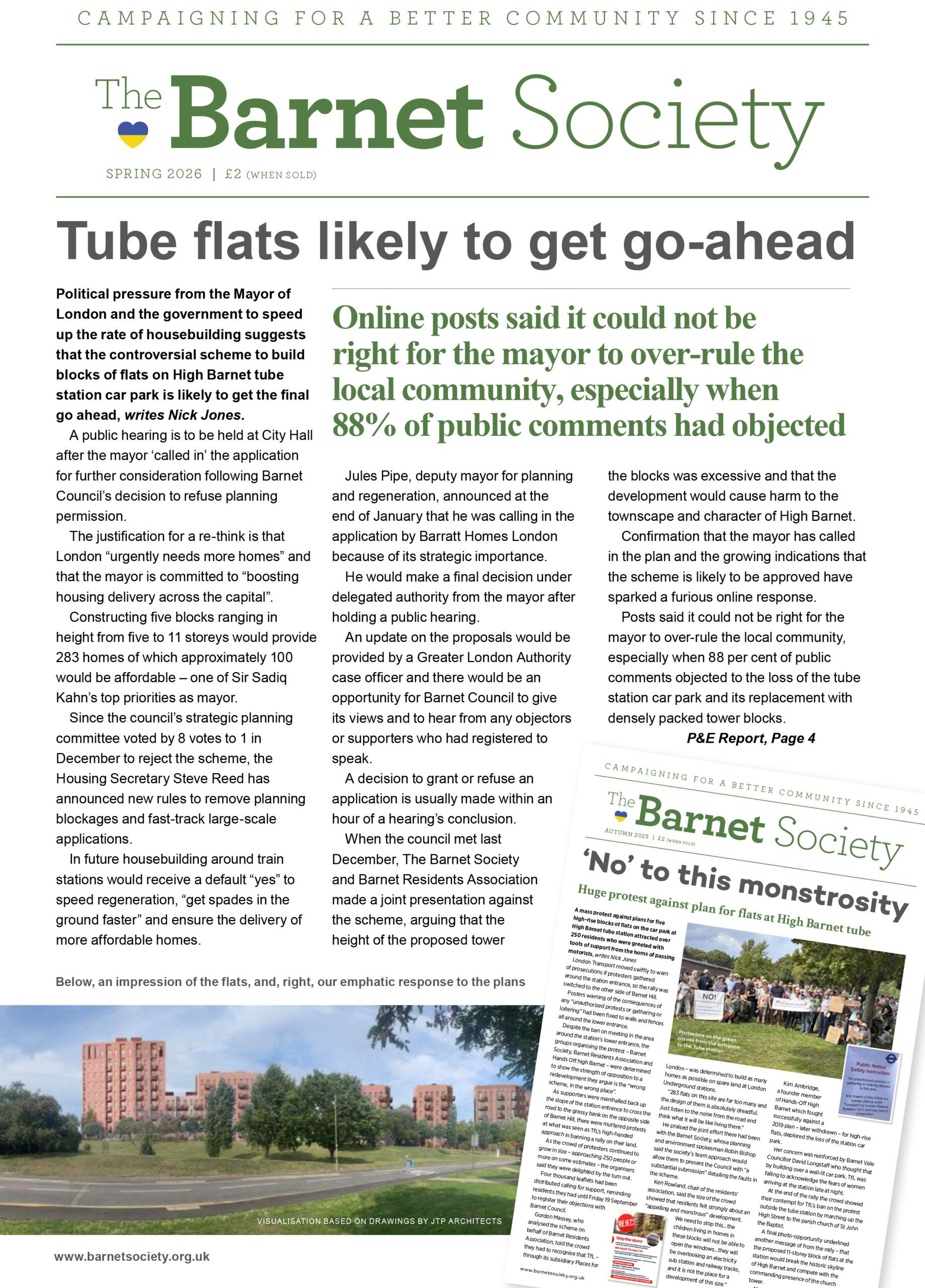Death of former QE Boys headmaster Tim Edwards who steered school’s switch from grammar to comprehensive

Tim Edwards, the headmaster who led Queen Elizabeth’s Boys’ School, Barnet, through what became a difficult but short-lived era as a comprehensive school, has died at the age of 98.
He was a great advocate of comprehensive education, an innovation that doubled the size of QE Boys, but after a dramatic fall in exam results and complaints about poor behaviour, the school reverted to its previous status as a grammar school.
Timothy Bracey Edwards – seen in the photograph above on his appointment in 1963 – was a popular figure among pupils at the time.
Tributes from those at the school during his headship – published on the website of what is now Queen Elizabeth’s School — have praised him for being a man of “great compassion and principles”.
In his tribute, the current headmaster, Neil Enright, says that after having served during the later stages of the Second World War at the Bletchley Park code-breaking centre, Mr Edwards established a successful career as a teacher.
He became head of QE at the start of the 1960s, a period of huge change in the national education system.
He not only had a long headship at the school, but also became a figure of consequence in the locality, serving on Barnet Council’s Education Committee.
State schools began switching to become comprehensives from the mid-1960s after public dissatisfaction with the 11-plus exam and the way children were then being divided between grammar schools and secondary schools.
Mr Edwards, previously assistant master at Manchester Grammar School for ten years, had always been interested in the comprehensive concept and advocated its introduction in Barnet.
QE Boys changed from being a grammar to a comprehensive in 1971, becoming an all-ability school under the control of Barnet Council and was open to boys within its catchment area in and around High Barnet.
The size of the school’s roll virtually doubled after 1971 and at the time Mr Edwards praised the extent of government funding, stating that “nothing has been spared in equipping the school for its new role.”
Mr Edwards, who retired in 1983, said he remained at the school because of his belief in education form.
“I thought if I had advocated comprehensive education, I should stay and see it through, so I did.”
But within less than a decade of the switch exam grades across Barnet’s comprehensive schools had started to fall and QE Boys’ future was at stake.
The 1980s had become a highly politicised era for schools in England and Wales and QE was no exception.
In his history celebrating the school’s 450th anniversary, former headmaster Dr John Marincowitz, said he admired the two heads who steered QE through these troubled years – Ernest Jenkins (1930-1961) and Mr Edwards.
Jenkins was undone by the disaster of the grammar/secondary split and the demise of the comprehensive system was the result of changing attitudes and a loss of confidence.
Dr Marincowitz said Mr Edwards’ successor as headmaster, the late Eamonn Harris, faced a bleak prospect when he was appointed head in 1984: QE was floundering after just 13 years as a comprehensive; it was the least preferred of the borough’s secondaries; and the school’s future was said to have been in doubt.
“On being appointed headmaster, Eamonn was told by the leader of Barnet Council’s education that the intention was to close the school within two years. Parental confidence had crashed and for the previous three years there had not been enough boys taking up places.
“Eamonn’s immediate priorities in turning round the school were to sort out misbehaviour, end mixed ability teaching and re-introduce setting.”
QE was one of the first schools to take advantage of grant-maintained status which was being offered by the Conservative government and which introduced self-governing and provided funding directly from Whitehall.
After taking back control of its funding from Barnet Council in 1989 – and benefiting from a more generous grant-maintained settlement – QE won the right in 1994 to apply a selective admissions policy and reverted to grammar school entrance.
QE is currently heavily oversubscribed and administers its own selection process. Last year the school attracted 3,500 applicants for an annual entrance exam for 180 places.
Its counterpart in Barnet, Queen Elizabeth’s Girls’ School, which was established in 1888 and has a shared foundation, was also a grammar school until it too became a comprehensive in 1977.
Both schools now have academy status, but QE Girls has remained a non-selective school and continues to offer places to girls within a three-mile catchment area around High Barnet.
Mr Edwards, who was pre-deceased by his wife Pat, is survived by their five children.
Further details of his career and tributes are available at: https://www.qebarnet.co.uk/honouring-former-headmaster-tim-edwards/

